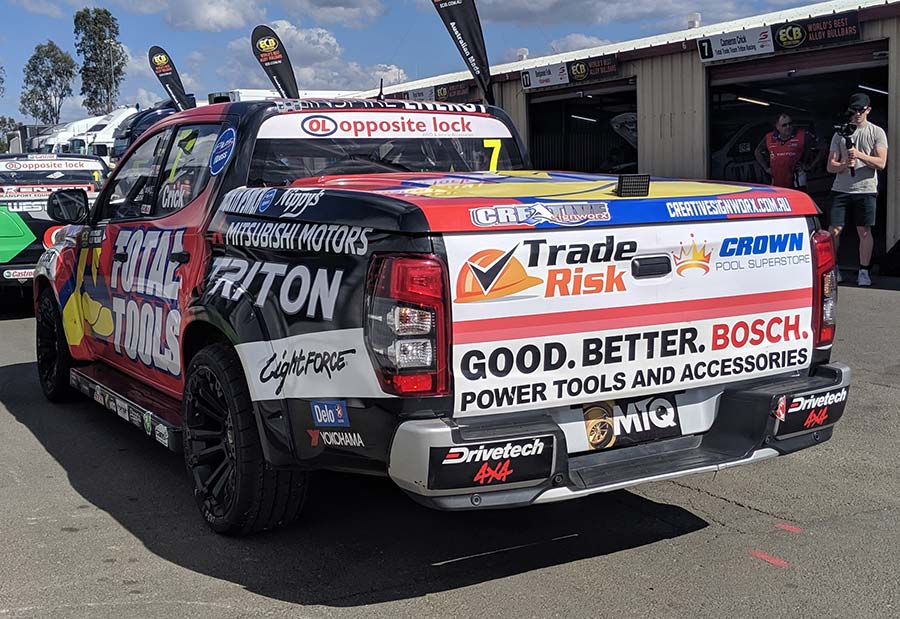How much do you really know about your business insurance?
In a perfect world you would put aside time each year to run through everything with your Trade Risk broker.
But it’s not a perfect world, and you’re busy running a business!
So if you don’t have time to speak with your broker, but do have a few spare minutes to read this guide, you could be doing yourself a massive favour.
Why does it matter?
We have plenty of amazing clients who rely on their Trade Risk broker for advice and assistance throughout the year to keep their insurance in check.
But there are also plenty who forget about their insurance five minutes after the certificate of currency hits their inbox each year!
It is a big deal though… Imagine getting hit with a $100k claim from one of your clients, then finding out your insurance is invalid as you hadn’t kept your details up to date, or didn’t have the right cover.
We’re fortunate that this happens very rarely to our clients, but it’s always a risk, and one that could be avoided by giving a little time and attention to your insurance.
Let’s get started!
Our preferred option for a proper insurance review is to speak with your Trade Risk insurance broker.
It won’t cost you a cent extra, since being a Trade Risk client entitles you to all the advice and reviews you need!
But if you prefer to do things yourself, here are some good options to get started.
We’ll run through the checklist based on the policy type, starting with the most common form of tradies insurance.
Click a question below to jump straight to the section, or simply scroll down to run through all of the questions.
Public Liability Insurance
- Is the policy current?
- Is the insured entity correct?
- Are your revenue and staff numbers still correct?
- Have your business activities changed?
- Has your usage of subcontractors or labour hire changed?
- I’m a bit unsure about something…
Tool Insurance
- Is the sum insured still correct?
- Have you added any big ticket items?
- Do you have invoices for all insured items?
Personal Accident Insurance
Motor Insurance
- Does your policy cover business use?
- Has the youngest driver changed?
- Has the driving history changed for any drivers?
Public Liability Insurance
Is the policy current?
This is an obvious one, but if your policy isn’t current, you won’t be able to claim on it.
Is the insured entity correct?
Have there been any changes to your business structure? Often with a start-up trade business we find that they’ll switch from being a sole trader to a company or trust at some point.
You need to ensure that our insurance is in the current name. If you’re invoicing clients under your company ABN, but your insurance is still under your old sole trader ABN, there could be issues at claim time.
Are your revenue and staff numbers still correct?
If your business has grown – or shrunk – since you last updated your policy, it’s important to let us know.
If the business has shrunk in terms of revenue of staff numbers, you might be paying more for your insurance than you need to be.
If the business has grown its revenue or staff numbers, you’ll need to advise us to keep your insurance up to date.
Have your business activities changed?
We don’t mean that you’ve switched from being an electrician to a plumber (although you’d need to let us know about that too!) but more so if the specific activities have changed.
Sticking with the electrician example, if you were only doing domestic and light commercial work when you started your policy, but now you’re doing industrial work, you need to let us know.
The same works in reverse… If you told us you were doing electrical work in power plants and mine sites when you took out your policy, your policy would have been more expensive due to the higher risk work.
If you’ve now gone back to doing domestic work only, you’ll be paying a lot more than you need to be for your insurance.
But we can only know about those changes – and adjust your premium – if you let us know.
Has your usage of subcontractors or labour hire changed?
Using subbies or labour hire in your business can have an impact on your public liability insurance.
If you’ve changed the percentage of your revenue that is going to subcontractors or labour hire firms, you need to let us know.
I’m a bit unsure about something…
If there is anything about your insurance that you’re slightly unsure about, let us know!
Any issues that could impact upon a claim are far better to be sorted out now, rather than at the time of a claim when it may be too late.

Tool Insurance
Is the sum insured still correct?
If you have $5k worth of tools when you took out insurance, but you now have $20k worth and haven’t updated your policy, that’s a problem!
Your tool insurance policy isn’t going to pay more than the value of the insurance, so you need to ensure that your level of cover stays up to date.
Have you added any big ticket items?
Most tool insurance policies will have a dollar limit per item. This doesn’t mean you can’t cove the higher value items, but simply that you must specify them on the policy.
The dollar amount differs between different insurance companies, but generally it’s around $2,500.
If you’ve purchased any additional items with a replacement value of $2,500 or higher, simply provide us with a description of the item and the replacement value, and we can have it added to your policy.
Do have you invoices or receipts for all of your tools?
This question is more about your own record keeping rather than the insurance policy.
All insurers require that you provide evidence of ownership for each tool in the event of a claim.
If you can’t provide any proof that you owned the item, the insurer won’t pay a claim for that item.
As a business owner you should be keeping all of your invoices for tax purposes anyway, but it’s also vital for your tool insurance.

Personal Accident Insurance
Has your income changed?
If your income has changed since taking out cover, it might not be appropriate for you now.
Maybe $1,000 per week was sufficient when you started your policy, but if you’re now earning a lot more and have a larger mortgage and bills to pay, you need to update that policy.
What use is your insurance if the weekly benefit amount isn’t going to be enough to cover your bills?
No matter how much you are earning, your personal accident insurance isn’t going to pay out more than the specified benefit on your policy.
Is the waiting period and benefit period still appropriate?
Our circumstances can change over time, in terms of financial responsibilities, children and business.
Your waiting period and benefit period may have been perfectly fine when you purchased your policy, but they mightn’t be right for your current situation.
Are you covered for illness?
You might assume that all personal accident policies cover you when you’re off work due to illness, but that’s not the case.
Sickness or illness must be specified on your policy in order for you to be covered.
Five minutes checking your policy today could save you thousands in the event of a claim!

Motor Insurance
Does your policy cover business use?
This is a big one, especially if you’ve recently become a self-employed tradie, and you’re still using the same ute that you had as an employee.
As an employee you likely would have had your ute insured for private use, but now as a business owner you should have it insured for business use.
If you have a claim, and the insurer can see that the vehicle was clearly being used for business use, they may decline your claim.
Has the youngest driver changed?
If you’ve taken on an apprentice and expect them to be driving one of your vehicles, it’s important to have them listed on the policy.
This won’t be an issue for a mature age apprentice, but if you have anyone under the age of 25 driving your vehicles it could impact upon your insurance and any claim.
Has the driving history changed for any drivers?
If you have someone new driving your vehicles with past driving offences or licence losses, you need to disclose this to the insurer.
Likewise, if you’ve picked up any new driving offences yourself, you need to disclose these to the insurer.
Talk to your broker
Whilst checklists are great, nothing beats having a proper discussion or formal review with your insurance broker.
Your broker can ask all the right questions to ensure your business insurance is set up correctly.
They can answer all of your questions – and as mentioned earlier – none of this will cost you an extra cent if you’re already a Trade Risk client.
Whilst this article and the “health check” questions are a great start, you must not rely on this article as any sort of replacement for a proper insurance review. Nor does it satisfy your duty of disclosure.
For more information please contact your Trade Risk insurance broker directly or call our office on 1800 808 800.




